It’s impossible to overstate the scale of the roles which both the maritime industry and energy sector play in enabling global trade. The shipping industry’s ability to transport of goods over long distances, both efficiently and cost effectively, means that it occupies a unique role in driving the world economy.
If any doubts remain about the maritime industry's significance, the statistics are compelling and convincing – it’s estimated that between 80-90% of goods, more than 11 billion tons annually, make their way to their destination via water.
In 2019, the total value of the annual world shipping trade was estimated to be more than 14 trillion US dollars.
The humble shipping container, invented in the 1950s to improve how goods were transported, revolutionised the maritime industry, introducing a more efficient standard size and shape for moving goods and replacing less cost effective boxes and crates of different dimensions.
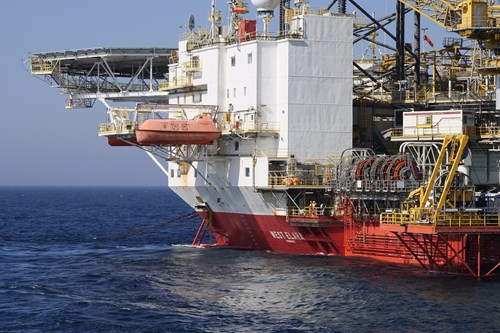
According to figures from Statista, in 2022 the world merchant container ship fleet had a capacity of around 293 million metric tons and, as of January 2021, there were 5,307 container ships in the world's maritime merchant fleet.
The UK Department of Transport’s Maritime 2050 strategy revealed that approximately 95% of British imports and exports in goods are moved by sea, including 25% of the UK’s energy supply, and 48% of the country’s food supplies.
In parallel with the maritime sector, the energy industry occupies a similarly crucial role in communities across the globe, delivering the power we need in our daily lives, sustaining and developing our business sectors and driving world economies.
The profile of the industry has changed markedly as the 21st century has progressed, a transformation brought about by a shift towards renewable energy resources, growing demand for technically skilled people and, crucially, increasing concerns about climate change.
That said, the global energy sector remains a powerhouse of the economy, employing millions of people and encompassing oil and gas drilling and exploration, nuclear power, electricity generation, fossil fuel extraction and renewable energy industries such as offshore wind, solar and hydrogen production.
However, alongside their huge significance in helping to maintain, support and drive the global economy, maritime and energy also face enormous challenges, as do all business sectors, in tackling the threat of global warming and easing the path to net zero.
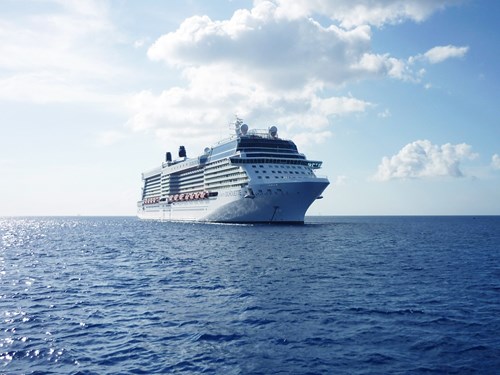
Clyde Travel Management brings a wealth of experience to the Maritime & Energy sectors
As a full-service travel management company and an ERM specialist, Clyde Travel Management have been working with shipping companies around the globe for more than 30 years.
That lengthy track record of working with the maritime industry has given us an unrivalled understanding of the importance of having an experienced and trusted partner who can move your people from A to B, safely, on time and cost-effectively.
Our decades of experience of mobilising thousands of seafarers of all nationalities across the globe means we understand the cultural nuances and challenges involved in delivering a safe, efficient and value for money travel programme for our customers.
We understand the complexities – and the potential pitfalls - involved for your company in organising travel services and arranging the crew mobilisations and rotations which play such a critical part in maintaining the global supply chain.

We have leading crew travel technology
Our proprietary technology Consort™ is just one of the factors that sets us apart from the competition, speeding up the process of making a travel booking while giving everyone involved in crew deployment full visibility of live and historical crew data.
Shipping operators can reap the benefit of customised data capture and approvals in line with their company requirements, helping to control costs and effectively manage the fleet.
Consort™ is integrated with leading providers of all existing crew management software, providing an end to end solution for the crew manager or fleet director. Our system ensures that crew members arrive in the right place at the right time.
But the technology is only effective if it’s supported by the right people – our customers know they always have the comfort of support from our team of expert consultants delivering mobilisations 24/7, 365 days a year.
Marine and offshore fares are only available through a handful of specialist agents. Thanks to our experience of mobilising seafarers on behalf of some of the world’s leading operators, we can offer our clients access to global marine airline contracts from over 80 airlines.
In addition, we can arrange charter flights and provide content direct from carriers via new distribution capability (NDC).
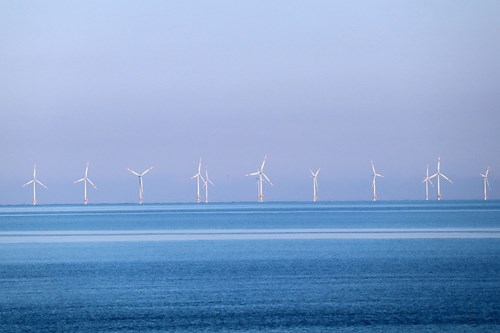
Benefits of business travel in the global maritime & energy sector
Business travel has a crucial role to play within the maritime and energy sectors. For both industries, their geographic spread, their global profiles and their roles as key employers of millions of people, mean that business travel is a key feature of their operations. And, as with any other business sector, there can be a wide range of reasons for travel.
Safety on Board Vessels
A key performance indicator for the maritime and energy sectors are safe operations. Ensuring that crews are changed timely and within their contract period is critical to maintaining optimum performance for the ship and asset owners and managers, many of whom strive to take care of their crew's mental and physical wellbeing. Crew travel to and from vessels contributes to the efficiency and productivity of the ships and assets while optimising operational performance.
Building relationships
One of the key motivations – and one which most of us have come to appreciate even more over the last couple of years – is, quite simply, to communicate.
The desire to meet potential customers, visit, explore and assess potential new markets and catch up with company colleagues are all essential activities within the maritime and energy sectors and, since the threat of the pandemic has receded, ones which are now returning to something approaching normal service.
Site visits & inspections
Site visits to wind farms and scheduling travel for crews to carry out maintenance work offshore are daily requirements for specialist companies across the globe.
Business travel plays a crucial role in enabling these activities by providing professionals with the opportunity to travel to remote locations, visit offshore platforms and vessels, and assess infrastructure and equipment firsthand.
Attending Industry Events Helps Win New Contracts
Other activities such as attending industry events to network with customers, potential new clients and suppliers are often vital for companies looking to boost their profile drive growth and encourage employee innovation.
While the growth of digital meetings has brought many benefits in terms of saving money and helping to support employee wellbeing, most companies in the maritime and energy sectors would confirm that face-to-face communication plays a highly significant part in their day-to-day operations.
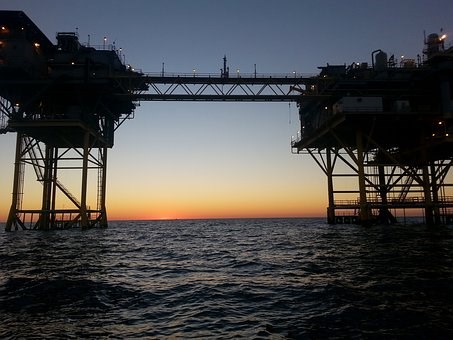
Challenges of travelling within Energy, Resource & Maritime (ERM)
As with travel of any kind for business or pleasure, some elements are absolutely essential for companies operating in the maritime and energy sectors who are in the market for travel management services.
Health & safety concerns
The number one requirement will always be safety, with the health and wellbeing of employees the top priority for all responsible businesses.
From seafarers working on vessels in challenging weather conditions to maintenance crews requiring access to offshore wind developments, operators should demand a travel progreamme in which all health and safety issues are taken care of and their employees welfare is at the heart of any travel plans.
Having regularly updated and reviewed safety protocols for travellers is vital – that could involve reviewing the weather conditions ahead of a planned trip, assessing any concerns about medical issues such as COVID or other infections or taking note of political factors which might mean there is unrest in destinations which employees are visiting which could impact on their safety.
Speedy & cost-efficient crew mobilisations
Value for money is clearly another essential, particularly as maritime and energy operators increase their focus on working in a sustainable manner and mitigating the impact of their activities on the planet.
Speed and the efficient mobilisation of crew from A to B is also of key importance in any travel programme, an area which benefits from the focus in both the maritime and energy sectors on technological innovation.
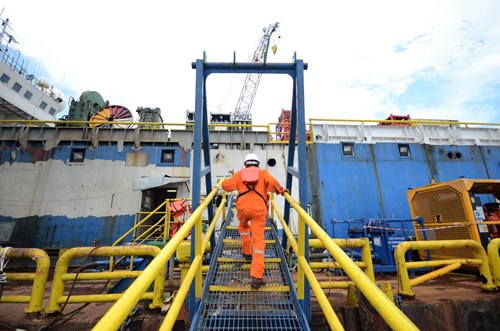
What does successful business travel look like for the Maritime & Energy sectors?
So what does success look like when it comes to delivering travel management services for maritime and energy operators?
We might sound like a broken record….but your main focus will always be on safety when booking your travel programme.
Travel risk management
Having a robust and regularly updated travel policy in place is so important, particularly when global conditions which we can't control, whether those are political, economic, medical or meteorological, can change rapidly and without warning.
That policy can also take account of areas such as the availability of suitable healthcare support for employees working offshore in specific locations or whether travellers have any particular health requirements or disabilities.
Global maritime & offshore fares
Given the unpredictable nature of the maritime & energy trades, your travel programme should leverage industry fares to provide flexibility for cancellations and changes in the event of an unforeseen circumstance.
Bespoke industry fares can also come with additional benefits such as extra baggage to cover any work clothing or equipment & priority over other travellers.
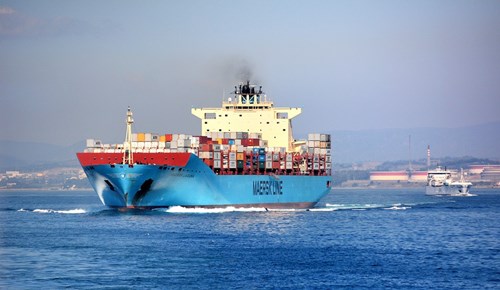
Experience and specialist knowledge is key
Travelling while working in the marine and energy sectors, increasingly in the offshore and renewables industries in particular, comes with an increasing number of logistical challenges.
The nature of these sectors, coupled with the unpredictability of travelling in a global environment where weather, political and other conditions can change overnight, means that for any business, there are many factors to consider when arranging a travel programme.
At Clyde Travel Management, we offer our customers the comfort of working with a partner with an unrivalled track record of delivering travel management services for global businesses and a specialist understanding of the specific challenges facing the maritime and energy sectors.




